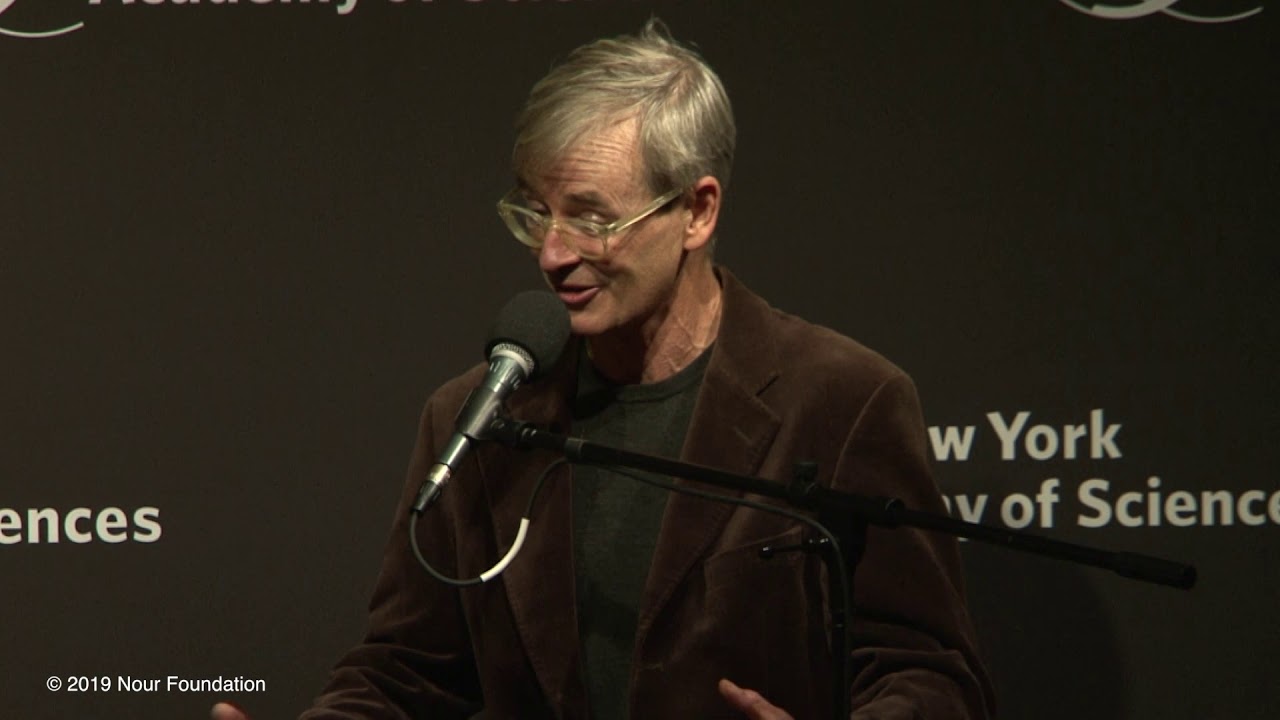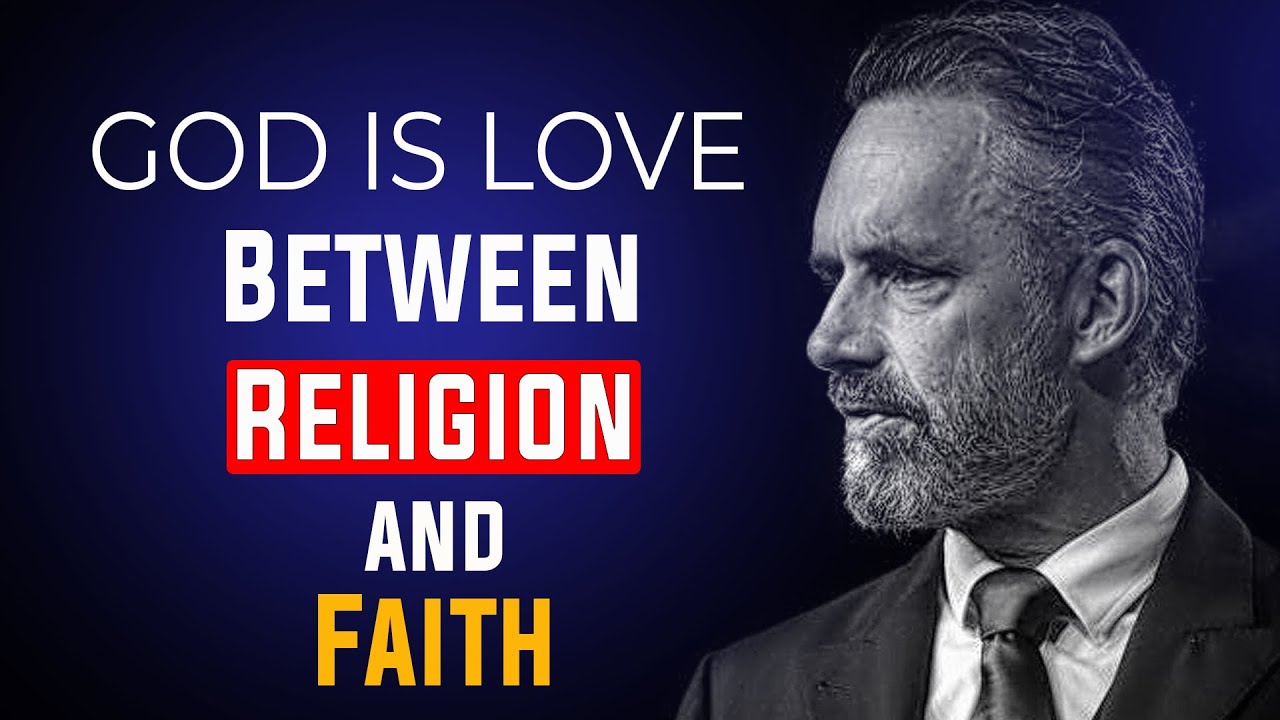Difference Between Religion And Spirituality - Navigating Belief Systems
The exploration of human beliefs and their foundations has long been a subject of inquiry, leading to the intriguing distinction between religion and spirituality. The crux of this article lies in understanding the essential difference between religion and spirituality - a difference that shapes how individuals perceive the world, their beliefs, and their place within it.
Author:Georgia AshcroftReviewer:Ava MartinezAug 14, 202320.7K Shares283.5K Views

The exploration of human beliefs and their foundations has long been a subject of inquiry, leading to the intriguing distinction between religion and spirituality. These two dimensions of the human experience offer contrasting pathways to understanding the sacred and the self. The crux of this article lies in understanding the essential difference between religion and spirituality- a difference that shapes how individuals perceive the world, their beliefs, and their place within it.
The Meaning Of Religion
Religion is a multifaceted concept encompassing an organized institution characterized by structured belief systems and well-defined practices, primarily shared among its members. These beliefs frequently delve into the realm of transcendence and spirituality, shaping the way individuals perceive the world and their place in it.
The transmission of these beliefs often occurs both through the teachings of established members and the conversion of new adherents, fostering a sense of continuity and unity within the religious community.
Central to the concept of religion are its established rituals and ceremonies, which are often overseen by individuals in positions of leadership. These leaders not only guide the adherents in matters of faith but also play an integral role in upholding the formal aspects of the religious institution.
Through these rituals, often deeply rooted in the core tenets of the belief system, a framework is established for how individuals should navigate their lives in alignment with the teachings of the religion.
Beyond the spiritual realm, religion extends its influence into the social fabric of communities. It serves as a robust support network, connecting individuals who share similar convictions and values.
This interconnectedness fosters a sense of belonging and provides a platform for the exchange of emotional, psychological, and sometimes material support. Furthermore, religion offers a set of guidelines that translate into practical behaviors for adherents to follow in their everyday lives, grounding their actions in accordance with the prescribed rituals, practices, and moral codes.
Distinctive attire often becomes a hallmark of religious identity, particularly for religious leaders who are visible symbols of the faith. These attire choices serve as outward expressions of their commitment to their beliefs and their roles within the community.
Moral codes and ethical principles, often derived from the teachings of a supernatural being or higher power, guide the actions of religious adherents, shaping their interactions with others and the world around them.

The Difference Between Religion and Spirituality
At the heart of religious adherence lies a profound commitment to following the principles set forth by the belief system. This commitment finds expression in the observance of religious rites and practices.
For instance, Christiansmay gather for Sunday church services, Jews may honor the Sabbath, and Muslims may fast during the holy month of Ramadan. These practices not only serve as acts of devotion but also as pathways to deeper spiritual connections and a strengthened sense of purpose.
Religion embodies an intricate tapestry of organized beliefs, practices, and rituals that provide a framework for understanding existence and guiding human behavior. It functions as both a source of spiritual fulfillment and a binding force within communities, nurturing a shared sense of identity, purpose, and interconnectedness among its members.
The Meaning Of Spirituality
Spirituality delves into the realm of one's inner self and soul. It encompasses an individual's unique set of beliefs and practices, and a constant quest to unravel the purpose underlying existence.
The essence of spirituality is deeply personal, subject to evolution as it interacts with the ebb and flow of individual life experiences. Through personal exploration, study, and introspection, each person fashions their distinctive interpretation of spirituality. At its core, spirituality aims to unveil an inherent reservoir of strength to confront life's trials, as well as to forge a connection with a realm beyond the self.
The realm of spirituality is universally experienced, yet profoundly individualistic. Descriptions of spiritual encounters vary widely, encompassing the sacred and transcendent, a profound sense of interconnectedness, or even a pure outpouring of gratitude.
Remarkably, one can find themselves aligned with both a religious community and the spiritual journey, or conversely, they may uncover their own personal rapport with a higher power. Some choose to seek life's meaning through their communion with nature or artistic expressions.
Amidst the discourse surrounding spirituality versus religion, it's important to recognize that neither inherently outweighs the other. Spirituality, in its expansiveness, extends beyond the boundaries of religion. Religion often adheres to clearly defined moral guidelines, whereas spirituality eludes precise definition. Despite these distinctions, both paths offer avenues for individuals to anchor their lives in contentment and significance.
In essence, spirituality delves into the depths of one's being, fostering a unique connection to life's intricacies. It is a journey marked by personal growth and an exploration of the unknown, transcending conventional definitions and enriching existence with purpose and fulfillment.

What is the Difference Between Spirituality, Faith and Religion? | Jordan Peterson
Difference Between Religion And Spirituality
The characteristics that set apart a spiritual person from a religious person are as follows:
Evolution Of Beliefs
A spiritual individual's beliefs tend to evolve as they engage in personal study of their own spirituality. In contrast, religious belief systems are usually predetermined and endorsed by recognized authorities within the religious group. These authorities communicate any changes in ideology to the members, who are expected to adhere to these teachings.
Religions often emphasize unwavering belief adherence, rooted in scriptures or teachings provided by religious leaders. This approach can discourage independent thought and instead promotes unquestioning acceptance of doctrines.
Conversely, spirituality encourages individuals to consistently heed their inner voice, utilizing it as a moral compass. It promotes breaking away from blind obedience and conformity, encouraging the forging of unique paths in life.
As a result, those practicing spirituality may experience ongoing shifts in their beliefs as they navigate through life and accumulate new experiences. What might be deemed right or wrong at one point can therefore evolve over time due to evolving perspectives shaped by personal growth.
Differences In Personal And Collective Beliefs
Spirituality is a solitary connection with the divine, whereas religion involves a collective of individuals united by shared faith or beliefs about the divine. Religion focuses on shaping an individual's character through adherence to rules, influencing beliefs, attitudes, and behaviors.
This communal aspect creates unity among followers who share similar character traits and perspectives on life. On the contrary, spirituality centers more on the individual's inner soul.
Across the diverse spectrum of religions in the world, a common thread often prevails—the belief in the exclusivity of their narrative. However, a person practicing spirituality has the capacity to extract beliefs from various religions, amalgamating these truths to craft a personalized belief system.
Thus, the question of whether one can be both spiritual and religious is answered with a "yes," provided the individual's genuine convictions align with a specific religious framework. Nonetheless, many spiritual individuals perceive a universal truth underlying all beliefs, transcending apparent differences.
Spirituality places greater emphasis on the essence of the message rather than fixating on minute disparities in the original accounts. For instance, while followers of Christianity might meticulously study the narrative of Moses and the 10 Commandments, a spiritual person might extract broader lessons such as gratitude and honesty.
While spiritual beliefs tend to be distinct, they often promote the notion of human unity. Boundaries of the world encompass no divisions of race or culture. Humanity is viewed as an interconnected whole, with love serving as the fundamental essence of all individuals.
Despite potential ideological contrasts, the shared consciousness among humans supersedes surface disparities. This perspective encourages mutual acceptance and collective support on the journey toward enlightenment.
Absence Of Rules In Spirituality
A spiritual individual often navigates their personal journey to uncover truths, deviating from strict ideologies or rule sets. This exploration is deeply personal and occurs privately, enabling individuals to rely on their intuition and prioritize actions aligned with their well-being.
Certain spiritual traditions provide theories and practices as guidance for seekers, not as doctrines to be adopted. These tools serve to aid spiritual growth rather than prescribe beliefs.
In contrast, a religious adherent embraces truths prescribed by their faith, often documented and shared within the community. Religion frequently introduces the concept of reward or punishment for upholding beliefs and rituals, while spirituality predominantly seeks inner tranquility as its reward.
Fear of consequences, particularly in the afterlife, is a central element in religious contexts. Practitioners often worry about the repercussions of their life choices once they pass away, with concerns about potential damnation.
Conversely, spirituality emphasizes channeling energy into positive pursuits and acting out of love. Spiritual individuals follow their inner compass, guided by their sense of morality, irrespective of potential outcomes.
Although spirituality doesn't employ threats of punishment for deviating from specific rules, it does acknowledge the notion of karma - the principle of cause and effect. Actions and intentions carry weight, influencing one's future experiences. Acts driven by good intentions and kindness pave the way for future happiness, while negative intentions might lead to future hardships.
Formation Of Beliefs
Individuals on a spiritual path often shape and refine their beliefs through firsthand experiences, often involving trial and error. This dynamic approach empowers them to uncover personal truths without being confined by the limitations of understanding. Conversely, religious individuals derive their beliefs from accounts of experiences attributed to their religious founders or through parables.
Spirituality encourages the forging of an individualized journey, allowing for a unique path towards enlightenment. Boundaries are absent in the realm of self-discovery, fostering trust in one's instincts and the inner compass. At its core, spirituality acknowledges the inherent potential within each person, recognizing them as not merely human bodies, but as souls with boundless capacities - a distinct and potent manifestation in the world, each serving a unique purpose.
While spiritual individuals shape beliefs through personal experiences, religious adherents often learn through shared experiences concerning their religious origins.
So, what separates a spiritual person from a religious one? The distinction lies in the orientation of their ethical compass. A spiritual individual seeks guidance within themselves to determine the right course, while a religious person looks externally for direction.
Those following a spiritual path display adaptability to evolving circumstances and discoveries throughout life, fostering a flexible belief system. A significant divergence between religion and spirituality is the contrast between belief and essence. Religion accentuates the substance of followers' beliefs and their practical application in daily life. On the contrary, spirituality's emphasis rests on the process of attuning oneself to their inner being.
People Also Ask
What Are The Three Types Of Spirituality?
There are three basic types of spirituality: spiritual individualism, spiritual collectivism and spiritual dialogue. individualist spirituality is centered on the within. collectivist spirituality is centered on the institutions of religion.
What Are The Five Characteristics Of Spirituality?
Five characteristics of spirituality include: meaning, value, transcendence, connecting (with oneself, others, God/supreme power and the environment), and becoming (the growth and progress in life).
What Are The Four Pillars Of Religion?
The pillars of an authentic Catholic life are summarized in the traditional four pillars of Catholic catechisms: faith, liturgy/sacraments, life in Christ, and prayer, which Peter distills in Acts 2:42.
Conclusion
The difference between religion and spiritualityis not merely semantic but holds profound implications for how individuals perceive, interpret, and navigate their existence. While religion offers a structured framework that can provide solace, community, and direction, spirituality is an intimate voyage that empowers individuals to uncover their truths and realize their limitless potential.
Recognizing and appreciating this difference provides insight into the diverse ways humans connect with the sacred, grapple with life's complexities, and ultimately define their purpose in this intricate tapestry of existence.

Georgia Ashcroft
Author
Georgia Ashcroft is a seasoned astrologer and spiritual practitioner with over 5 years of experience. She holds a Master's degree in Physics from Princeton University, enriching her astrological insights with a deep understanding of scientific principles.
Georgia's published works encompass insightful analyses of astrological phenomena, including zodiac signs and horoscope interpretations, establishing her as an esteemed figure in astrological circles.
Beyond astrology, Georgia is passionate about tarot and regularly incorporates its wisdom into her spiritual practice.

Ava Martinez
Reviewer
Ava Martinez is a highly experienced author specializing in spirituality and tarot. With over 12 years of dedicated practice, Ava brings a wealth of experience and expertise to her writings.
She has dedicated herself to helping individuals gain insight and clarity through spiritual practices and tarot consultations.
Her deep connection to spiritual energies and engaging style make her readings a trusted resource for those seeking guidance and enlightenment.
Apart from her literary world, Ava embraces nature's gifts, explores meditation's depths, and intertwines the mystical essence of spells into her holistic perspective on life's journey.
Latest Articles
Popular Articles
